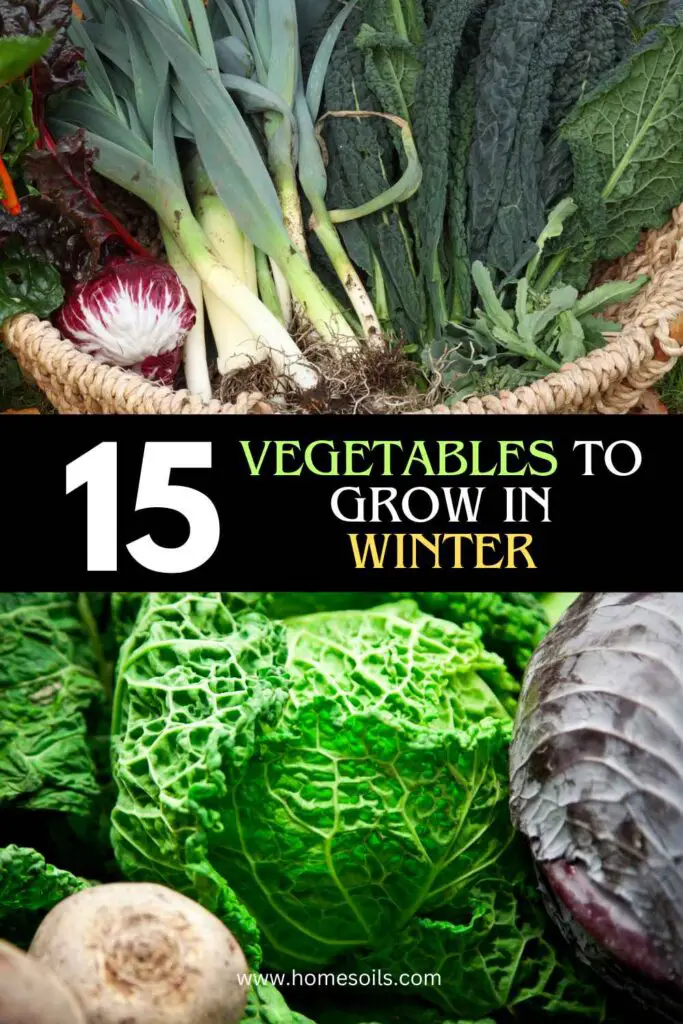Vegetables are a great gift of nature. Vegetables not only make and increase the taste of food but are also very good for health. Gardeners love to grow vegetables both in summer in winter. What are the best vegetables to grow in winter? Let’s know about them so you can decide.
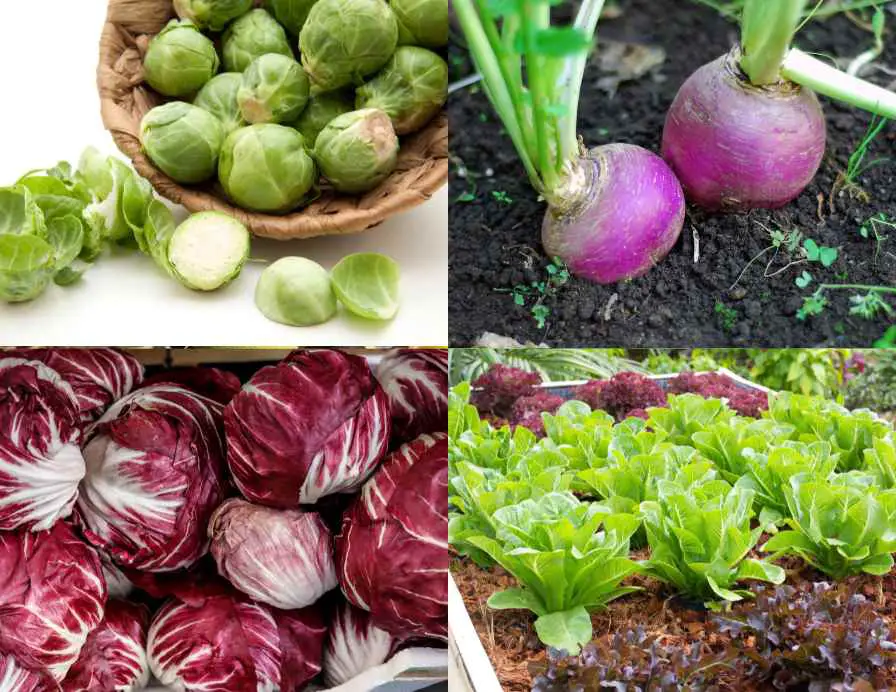
Things to Consider While Growing Vegetables in Winters
Winter vegetable gardening is a satisfying endeavor, but it does call for careful preparation and consideration of many variables. When producing vegetables in the winter, bear the following considerations in mind:
Not every vegetable grows well in the cold. Select cold-weather cultivators such as Brussels sprouts, kale, spinach, carrots, and radishes. These plants can withstand lower temperatures by nature.
Select a location in your garden that gets the most sunshine possible in the winter. Even in the winter, sunlight is essential for photosynthesis and can promote plant growth.
To shield your plants from inclement weather, such as frost, snow, and freezing winds, think about using cold frames, row covers, or cloches. Your plants will fare better over the winter months thanks to these protective covers, which provide a microclimate that is warmer than the surrounding air.
Best Vegetables to Grow in Winters
Well, there are many vegetables that can be grown in the winter. It is important to note that you should choose the vegetables which are native to your area. Also, you should also like them and there should be a market of these vegetables as well. In this way, you would be able to earn an extra dollar.
As mentioned, there are many vegetables that can be grown in the winters successfully in winter. Here are some of these so that you can choose and decide.
Kale
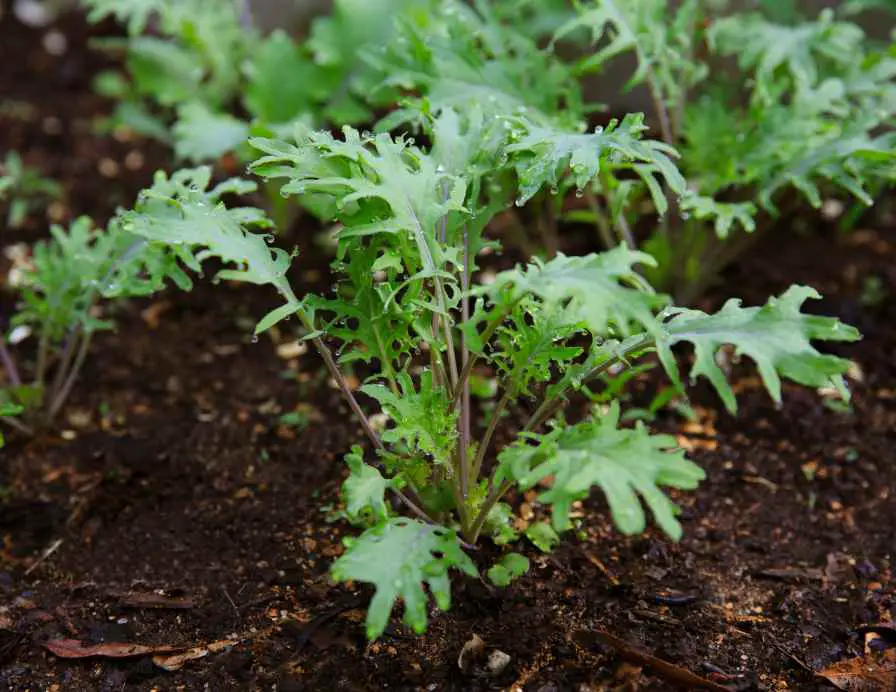
Winter brings out the best in this cold-hardy leafy green vegetable, kale. It may be collected at any point during the season and is rich in minerals, especially vitamins A and C. In addition to many other nutrients, it contains fiber, antioxidants, and vitamin C.
Spinach
A good source of iron and other necessary elements is spinach. It is a popular choice for cold-weather gardening since it is a fast-growing green that can be planted in the autumn and picked consistently throughout the winter. It also aids in heart and eye health improvement.
Carrots
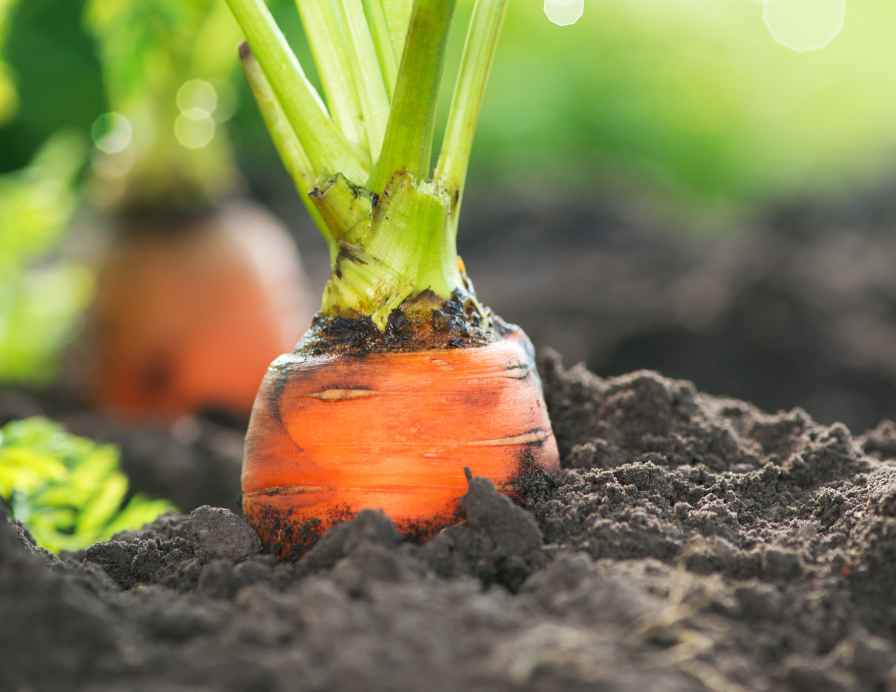
Carrots have a stronger flavor in colder climates and can tolerate frost. They are a very adaptable vegetable that may be used in a variety of recipes. In the winter, they can be kept in the ground and collected as needed. It is beneficial to the eyes and maintains blood sugar equilibrium.
Radishes
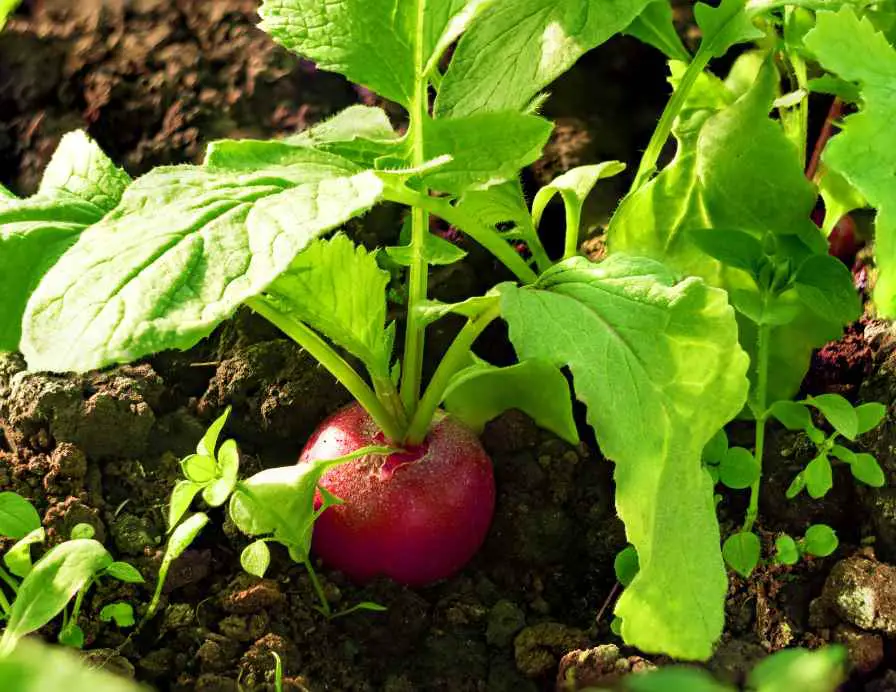
Root vegetables that develop in a matter of weeks are radishes. For a winter crop, they can be seeded in late summer or early autumn. Radishes provide salads and other meals with a sharp, peppery flavor. Patients with diabetes benefit from it. It also possesses anti-cancer qualities.
Winter Lettuce
Some lettuce cultivars, such as Winter Gem and Arctic King, are adapted to thrive in cold climates. They provide fresh salad greens in the winter and may be grown in the yard or in containers. All you have to do is protect it from extreme cold. You’d love the salads there.
Brussels Sprouts
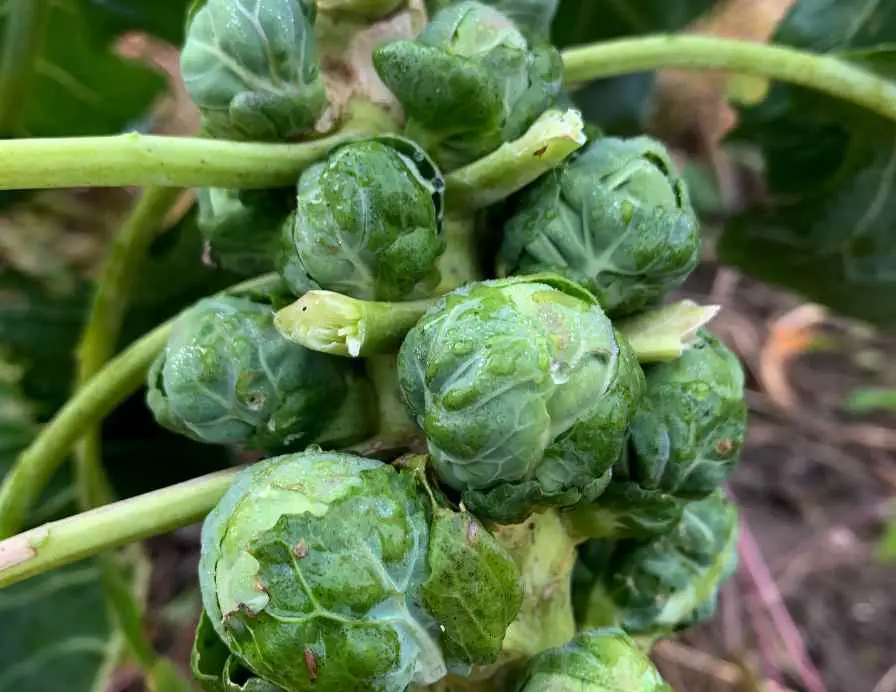
Belonging to the cabbage family, Brussels sprouts are prized for their small, tasty heads. When planted in late summer or early autumn, they make great winter vegetables since they mature in cooler conditions. it aids in reducing mood swings and also enhancing the digestive system of the body.
Broccoli
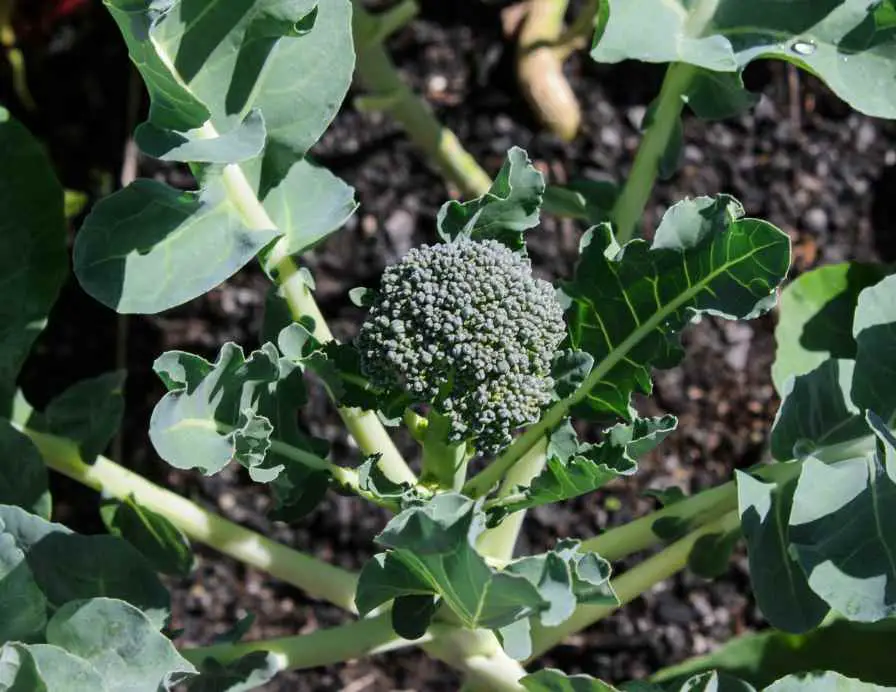
Vegetable broccoli can withstand freezing temperatures and yields tasty florets. It may be harvested in the winter and is high in vitamins and minerals, especially if sown in the early autumn. Broccoli is rich in vitamins and other minerals. It is utilized in weight loss and is a crucial component of the green diet.
Cabbage
A resilient winter vegetable with many kinds is cabbage. It adds a good amount of vitamins and fiber to soups, stews, slaws, and other foods. It prevents all forms of ulcers and aids in maintaining the digestive system’s overall health.
Chard, Swiss Chard
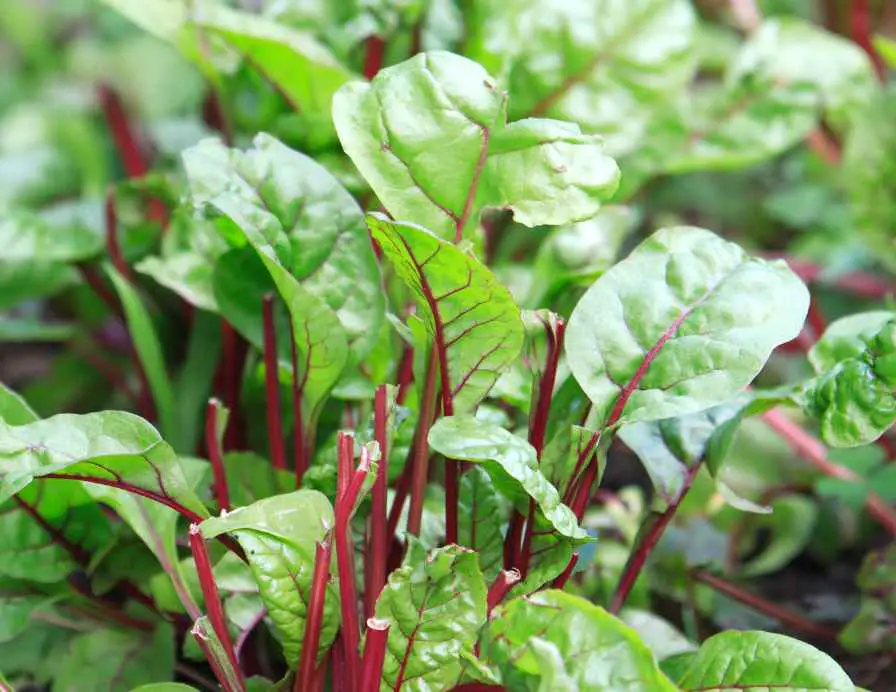
Swiss chard, or chard, is a leafy green vegetable that grows best in cold climates. Its delicate leaves and vibrant stems make it a great addition to salads and sautéed foods. One hundred grams of chard has around 19 calories. It’s steam- or sautéed-cooked. It’s also used for weight loss.
Turnips
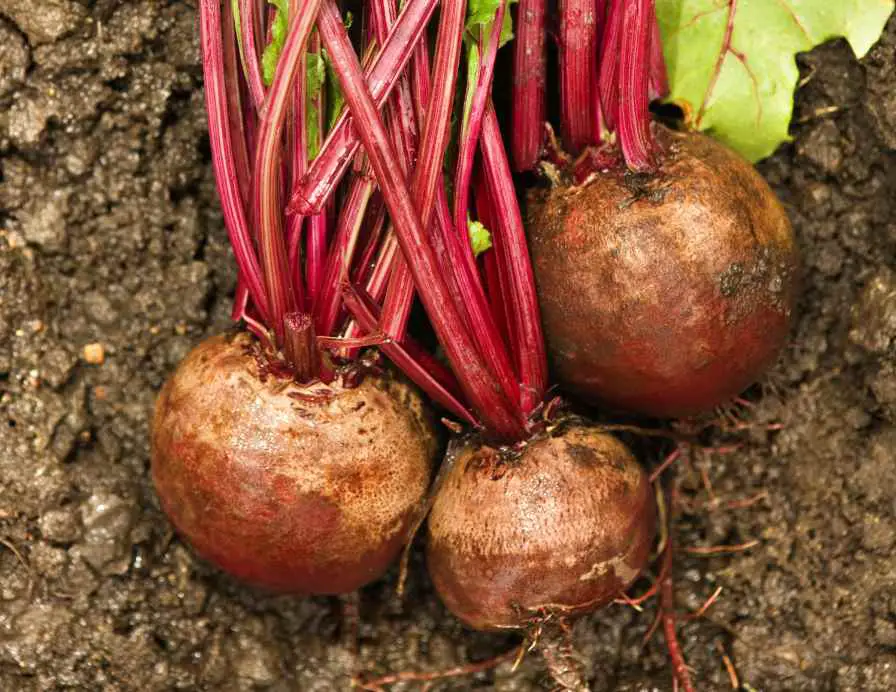
Winter root crops that can be cultivated include turnips. They are roasted, cooked, or used in soups and stews. Their flavor is a little spicy. Turnips taste best when they are boiled, roasted, or steam-cooked. These are beneficial for strengthening bones and increasing immunity.
Parsnips
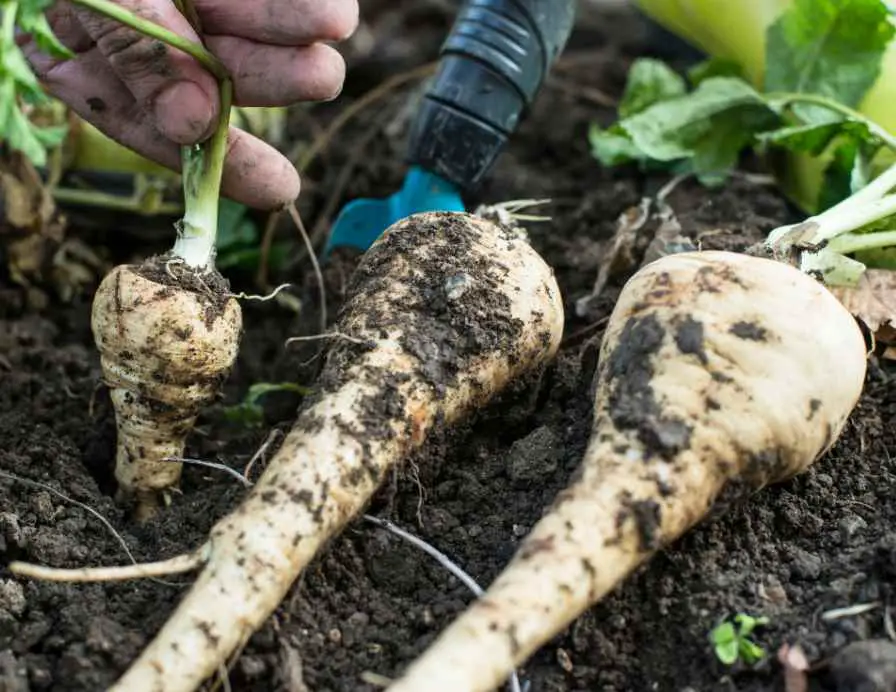
When exposed to frost, parsnips, which are root vegetables with a sweet and nutty flavor, become more flavorful. They can be mashed, roasted, or added to soups. They are a good source of dietary fiber. parsnips are sometimes confused with carrots, which they are not.
Due to its ability to regulate blood pressure, it is beneficial to health.
Garlic
Harvesting garlicHow to Grow Garlic in Fall? in late spring or early summer is possible if it is planted in the autumn. It is a common component in a lot of dishes and has a lot of health advantages. It may be consumed either raw or cooked. In the majority of dishes utilized it is used to boost flavor. It can also be used medicinally.
Leeks
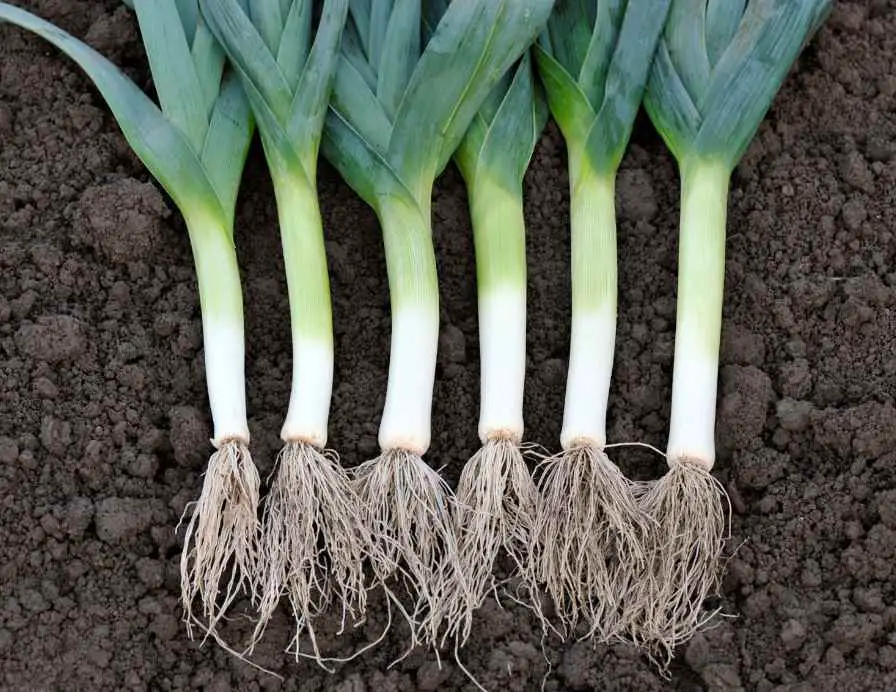
Onions and leeks are similar; however, leeks taste less strongly. They are frequently used in casseroles, stews, and soups and may be cultivated throughout the winter. It contains protein, potassium, and sodium. Despite having an onion-like appearance, this is not an onion. Its flavor is a tad softer and more delicate than onion.
Winter Radicchio
Italian chicory, also known as winter radicchio, has vivid purple leaves and a little bitter flavor. It enhances the color and flavor of food and is a great complement to winter salads. This is not the same as cabbage, despite common confusion. It is nutrient-dense and a powerhouse of vitamins and minerals.
Winter Herbs (such as Rosemary and Thyme):
Winter herbs like sage, thyme, and rosemary are hardy perennials that thrive all winter long, even though they are not vegetables. They may be collected all season long, even in colder areas, and lend fragrant flavors to recipes prepared during the winter.
Even in cold conditions, you may harvest these veggies in the winter and have a fresh, healthy crop.
Besides That, . . .
Apart from the veggies listed above, there are a few others that may be grown effectively in the winter. Vegetables that withstand the winter, such as cauliflower, which belongs to the cabbage family, can be planted in the late summer or early autumn and harvested in the winter.
In a similar vein, cold-weather-resistant pea types, such as sugar snap peas and snow peas, are perfect for planting in the winter. Winter-hardy kinds of celery, such as celeriac, and root vegetables like parsnips, with their sweet and nutty flavor, may be kept in the ground and collected as needed.
Furthermore, several Asian greens, such as tatsoi and bok choy, are excellent in salads and stir-fries during the winter. Last but not least, remember to use herbs like chives and parsley in your winter cooking.
These plants may thrive year-round indoors or outside in well-protected areas. The secret to growing these veggies effectively in the winter is to plan ahead, select the best types, and provide enough shelter from frost.
Taking Care of Vegetables in Winter Season
Winter vegetable care needs extra care because of the lower temperatures and the possibility of frost. The following are crucial pointers to make sure your winter veggies flourish:
Protect from Frost
Frost may harm or even kill delicate plants. Cover susceptible veggies using cloches, frost cloths, or row covers on chilly nights. Another way to insulate plants is by mulching their base.
Watering the Winter Vegetables
Winter winds and indoor heating can dry out the soil even in mild climates. Water your plants frequently to maintain a continuously wet soil, especially on sunny days. When plants are watered early in the day, moisture is absorbed by them before nighttime lows.
Diseases and Pest Control for Winter Veggies
Although the number of pests may decrease throughout the winter, others, like aphids, may still remain active. Insect infestations can be managed with natural treatments or insecticidal soap in addition to routine plant inspections.
Additionally, keep an eye out for illnesses because the wet winter weather might promote the growth of fungi. Disease prevention can be aided by adequate air circulation and proper spacing.
In a nutshell, winter vegetables are a great source of food supply for the kitchen. Even you can earn an extra dollar from it. It is also important that you should choose the vegetable variety wisely and take good care of it. Once good care is there you are good to go.
